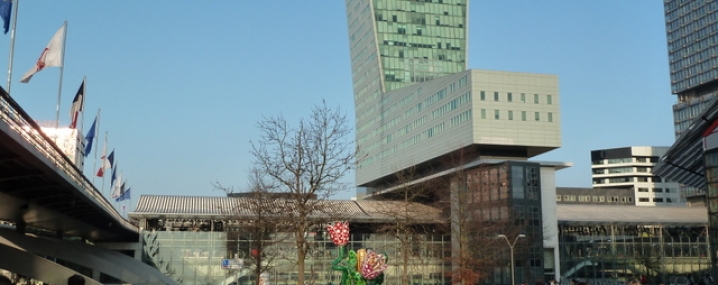Ulm
A city of some 120,000 inhabitants, Ulm is located in Germany’s Baden-Württemberg region on the banks of the River Danube. The river has long provided the city wide a variety of connections to other European cities and the Black Sea. Today, Ulm is a regional centre for culture, logistics and, in particular, for technology. Major international corporations such as Daimler, Siemens and Nokia, along with numerous start-ups, are all located in a municipality-run ‘Science City’ established nearly thirty years ago and now covering two science parks. Businesses, research centres and around 10,000 university students are based in the Science City on the hills overlooking of Ulm.
The birthplace of Albert Einstein, Ulm is one of many business clusters in the region, which together focus on a range of sectors including life sciences, biotechnology, the automotive industry and logistics. Among the multinationals operating in the region are automobile parts supplier Bosch, pharmaceutical companies Pfizer and Ratiopharm, and bus manufacturer EvoBus. However, the backbone of Ulm’s economy is made up of small and medium-sized enterprises that, along with Science City, provide 80,000 jobs in the region.
In terms of transport, Ulm has motorway links with southern Germany’s two other main cities, Stuttgart and Munich, along with direct high-speed ICE and TGV connections to the rest of Germany, Paris, Vienna and Budapest. The city’s commitment to renewable energy and low-energy buildings helped it win the European Energy Award in 2007.
SOME RELATED NETWORKS
ENTER.HUB
News



